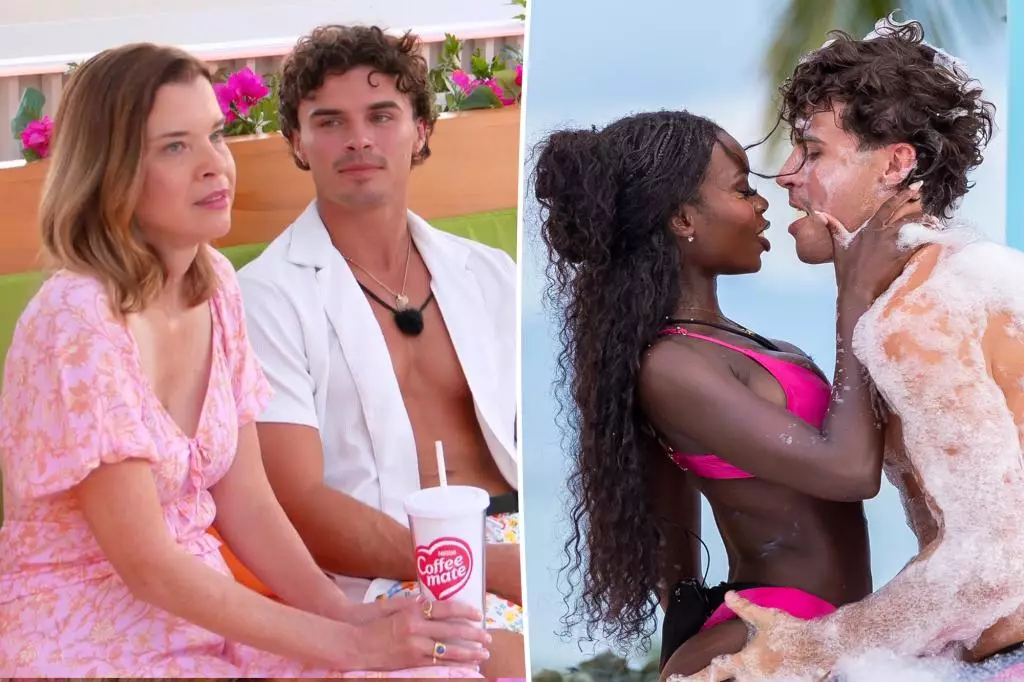In the realm of modern reality television, the boundary between personal authenticity and public spectacle has become increasingly blurred. Shows like Love Island serve as a microcosm of society’s obsession with entertainment at any cost, often exposing contestants to scrutiny that challenges their moral fiber and personal boundaries. The recent incident involving Nicolas “Nic” Vansteenberghe underscores a deeper dilemma: should reality TV be a platform for raw honesty, or does it demand a certain level of decorum to protect the contestants’ dignity? Vansteenberghe’s candid moment of intimacy, broadcast to a wide audience, ignited an ethical debate about privacy and the responsibilities of producers. While some argue that reality TV is inherently about exposing authentic human behavior, others contend that it commodifies vulnerability and perpetuates harmful stereotypes. The incident prompts us to question whether these platforms are fostering genuine human connection or just exploiting moments of vulnerability to boost ratings.
Family Values Versus Public Persona: The Power of Parental Guidance
A striking aspect of the incident was the role of Vansteenberghe’s mother and sister, who publicly confronted him for his actions on the show. Their candid remarks highlight an enduring truth: family influences shape our morals and sense of responsibility, even in the glare of mass media. The mother’s reprimand — “Nicolas, in public like that?” — reflects a protective instinct rooted in traditional values, but also raises questions about how external scrutiny influences individual accountability. Her openness on social media suggests a struggle between pride and moral concern, especially when her son’s actions are broadcast for entertainment. Conversely, some may critique her approach as overly judgmental or intrusive, emphasizing the tension between personal privacy and family loyalty. This situation exemplifies how familial opinions can serve as a moral compass, yet may also add pressure on contestants who navigate the conflicting demands of public approval and personal integrity.
The Fallout of Past Mistakes and The Quest for Redemption
The departure of Ortega from the villa, driven by a resurfaced racial slur, underscores the high stakes of morality in the digital age. The rapid dustup over her past illustrates society’s increasing intolerance for perceived moral lapses, especially when amplified through social media. Ortega’s public apology exemplifies the ongoing struggle for redemption in a world where mistakes can be eternally archived and magnified. Her heartfelt acknowledgment of her misuse of a racial slur demonstrates a recognition of the gravity of her actions, yet it also reveals the harsh reality: apologies alone may not suffice in the court of public opinion. The incident prompts a reflection on whether society truly allows space for growth and learning or if it demands perfection, punishing past mistakes with relentless severity. The challenge lies in balancing accountability with compassion, especially for young influencers who are still navigating complex social identities and histories.
The Evolution of Audience Expectations and the Future of Reality TV
Vansteenberghe’s new pairing with Olandria Carthen signals a shift from the turmoil to what might be seen as a fresh start — an attempt at rebranding and redemption. But this also reflects a larger trend: audience expectations are evolving, demanding more than just superficial entertainment. Viewers increasingly scrutinize contestants’ morals, backgrounds, and sincerity, pushing reality TV producers to curate personalities who can withstand the moral litmus test of social media. The positive comments from Vansteenberghe’s mother about Carthen reveal how external validation and family approval remain influential in shaping contestants’ narratives. As society grapples with its own standards of morality and authenticity, reality television must evolve — either by becoming more responsible in its portrayal or by accepting that it plays a role in shaping societal conversations about ethics and human flaws. Ultimately, the current landscape calls for deeper reflection: are these shows mirror images of our society, or are they shaping it into something more sensational than meaningful?
The incidents surrounding Love Island USA contestants don’t just reveal personal choices but serve as a mirror to societal values and flaws. The dilemma lies in balancing entertainment, morality, and privacy amid constant public exposure. When viewers are eager for drama, producers might feel compelled to prioritize sensationalism over ethical considerations. Yet, these moments serve as powerful lessons about human imperfection, accountability, and the influence of familial and societal expectations. As audiences, we are called to reflect critically on the stories we consume and the standards we impose, recognizing that behind the glitz and glamour are real people navigating complex moral landscapes. Reality TV, in its essence, should challenge us to confront uncomfortable truths about ourselves and society — if only we are willing to look beyond the surface.

